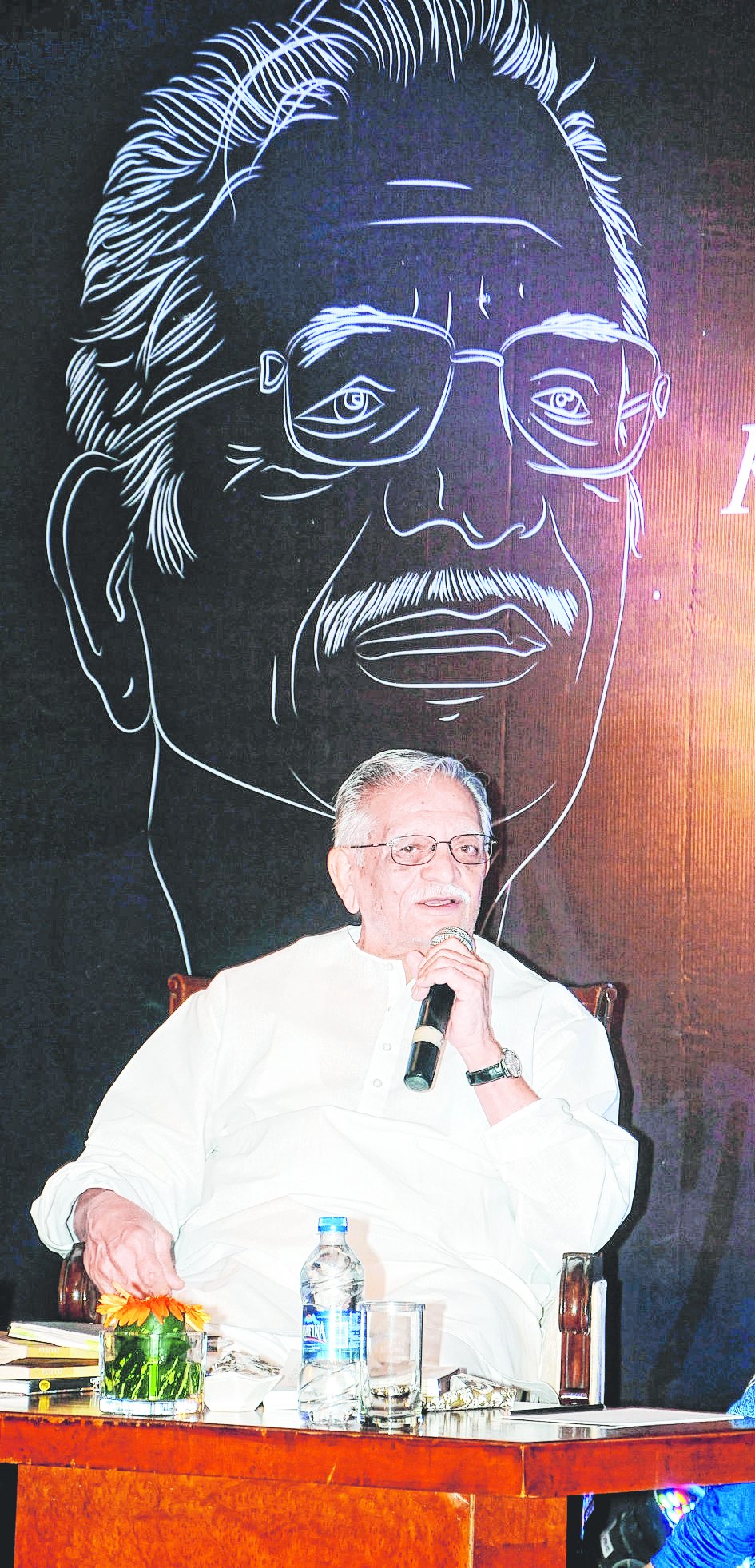
As a child, in the post-Partition years, Sampooran Singh Kalra led a "boring life". He would go to school, come back to help at the family shop, sleep there overnight and go to school again next morning.
There was no electricity at the shop, just a chimney lantern. So all he could do was read books. A refugee from west Pakistan ran a library in a shack around the corner where one could read unlimited books for 25p. The boy loved detective stories and finished one every night. Finally, the man got fed up. "How many will you read for 25p?" he barked, and brought down a tome from the top rack. "Don't come back till you finish this," he said. The book was The Gardener by Rabindranath Tagore, translated in Urdu. It introduced the boy to poetry and changed his reading habit. Thus was born Gulzar.
"I never returned the book. Every time he asked for it I would beg for time and borrow another title. This went on till he forgot all about it. After so many years, I have translated The Gardener, along with Tagore's poems for children. They are in the press now," said Gulzar, a smile of satisfaction lighting up his face.
The octogenarian was in town twice in the space of a week - once to mark the success of Kindle magazine's first biannual book edition and again for the launch of his book of poems, titled Pluto.
Young Gulzar's love for literature blossomed through the works of Premchand and Saratchandra Chattopadhyay. "Saratchandra gave me a sense of the complexities in a family. I started memorising shayrs too and gradually found myself understanding them. Later, I learnt Bengali to experience Tagore first hand. Bimal Roy was my first guru, then Salilda (Chowdhury) and Hemantada (Mukherjee). Then I married a Bengali girl (Rakhee) aur adha Bangali ban gaya," he grinned.
He went on to translate Subhas Mukhopadhyay in the 1960s and 70s, followed by Sunil Gangopadhyay and Joy Goswami as well.
Tagore, he feels, should be taught in schools across India. "He couldn't reach enough people in English. There is barely one-third of the original in his own translations which have done injustice to his works."
.jpg)
Pictures by Sayantan Ghosh and Bibhas Lodh
Gulzar has a grouse against Visva-Bharati, as well, for keeping a vice-like hold of the copyright to all of Tagore's works for 60 years after his death. "Tagore ko bandh karke rakha.... I wanted to do Noukadubi and some short stories of Tagore for Doordarshan and sought their permission. I was told I'd better keep the job for a Bengali director. Why? Is he the property of Bengalis?"
Gulzar is passionate about the need for translation. "We have so many languages. You can't learn them all. That's why translation is vital. I have translated 200-250 poems originating in 32 languages." The best shayari, he feels, now comes from the Northeast. "Their writing is the most vibrant. And if you see worldwide, Spanish poetry is the most alive. Had I stuck only to Urdu I would have lost out on those creations."
Pluto is a collection of Gulzar's works translated in English by Nirupama Dutt and accompanied by 30 charcoal sketches done by him.
The title was explained by composer Shantanu Moitra, who described Gulzar as his "youngest friend in Bombay" at the launch of the book.
"It wasn't even 7.30 one morning when I got a call from him. He doesn't usually call so early. His voice was agitated. 'Have you heard, Shantanu, they have turned Pluto out? What harm had it done?' He was speaking as if the smallest planet, rejected from the list of planets the day before, was an individual we knew. And I realised that this sensitivity is what makes him Gulzar."
The two are collaborating on an album to pay tribute to the Bard. "Loosen the shackles around Tagore and let the whole country experience him," Gulzar signed off.










